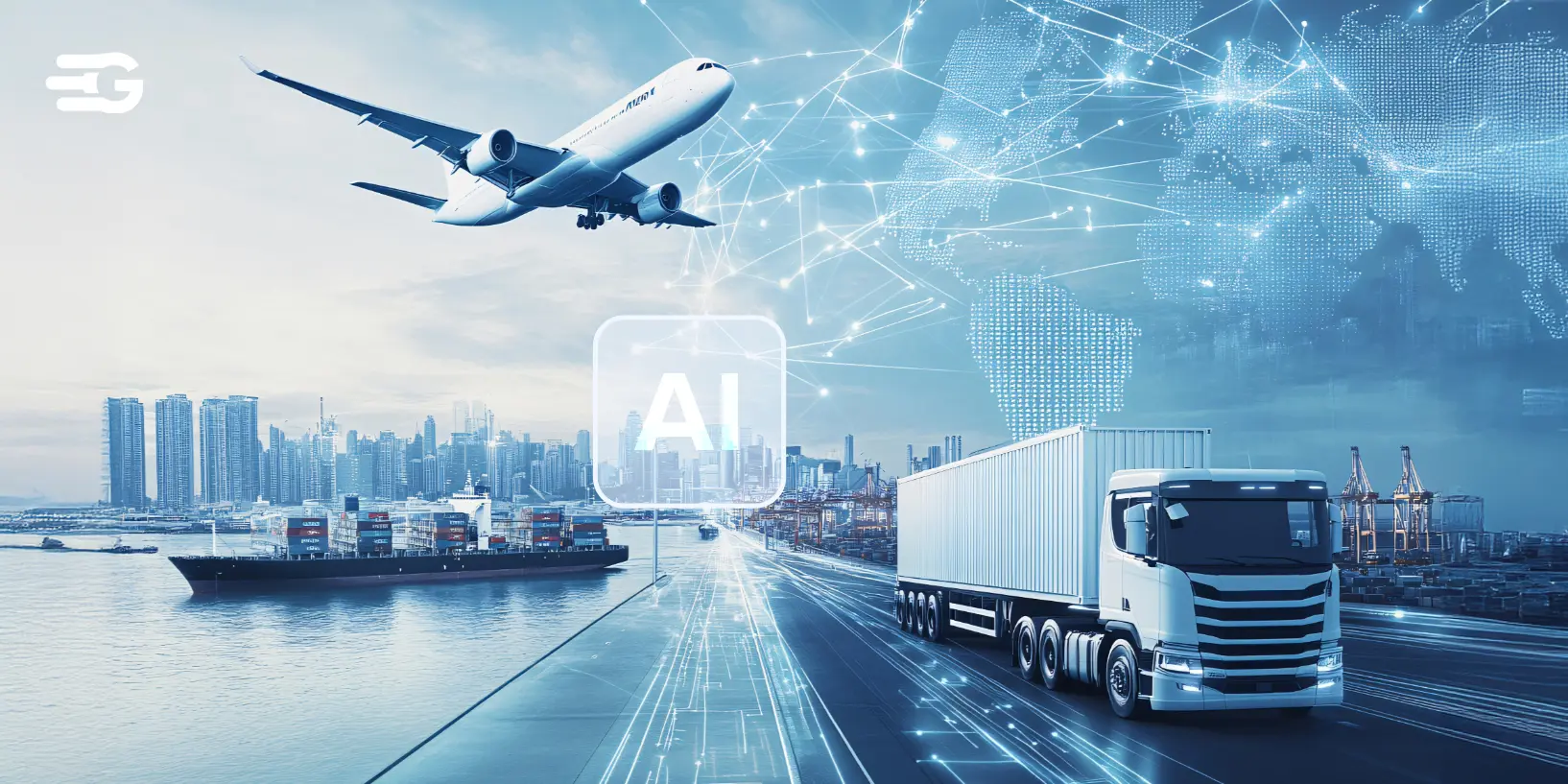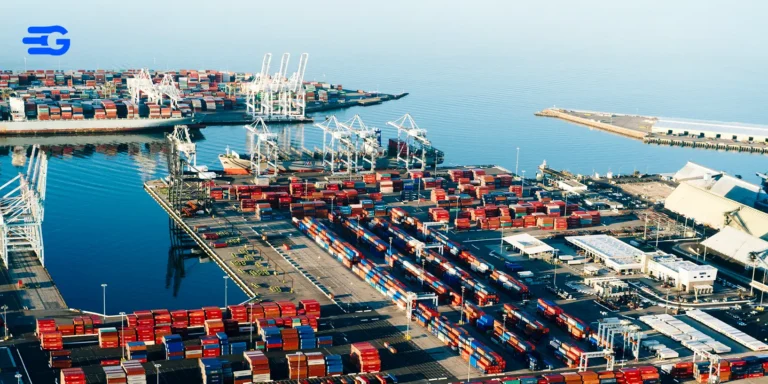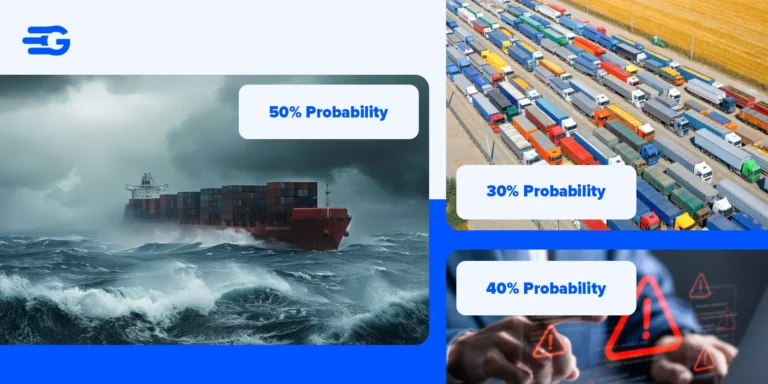Generative Artificial Intelligence: Transforming Supply Chain Management
In today’s rapidly evolving market, companies face increasing complexity and demand volatility. To stay ahead, many businesses are turning to a transformative solution: Generative Artificial Intelligence (GenAI). By enhancing efficiency, accuracy, and adaptability, GenAI is revolutionizing supply chain management. Let’s explore how.
Modern supply chains must navigate challenges ranging from unpredictable demand to complex logistics. Traditional AI solutions, while helpful, often rely on predefined rules and limited data interpretations. GenAI, however, goes a step further by generating new data patterns and learning adaptively. This capability not only addresses forecasting and process optimization challenges but also improves risk management, making supply chains more resilient.
What Is Generative Artificial Intelligence?
Generative AI refers to advanced algorithms capable of producing new content or data that resembles existing patterns. Unlike conventional AI that follows preset instructions, GenAI learns directly from data to create novel outputs. Examples include language models like GPT-4 and image generators like DALL·E. In the context of supply chain management, these models can simulate various demand scenarios, optimize logistical routes, and even design products with enhanced sustainability in mind.
Transformative Applications of GenAI in Supply Chain Management
1. Predictive Analytics & Demand Forecasting
- Enhanced Accuracy: GenAI analyzes complex datasets to identify emerging trends, leading to more precise demand forecasts. This reduces instances of overstocking or stockouts.
- Dynamic Adjustments: AI-driven models continuously learn from market signals, allowing businesses to adjust forecasts in real time and respond swiftly to market changes.
2. Intelligent Automation & Process Optimization
- Streamlined Operations: By automating routine tasks such as order processing and inventory updates, GenAI minimizes manual errors and liberates human resources for strategic work.
- Optimized Scheduling: Predictive maintenance insights help schedule production more effectively, reducing unexpected downtime and boosting overall efficiency.
3. Route & Freight Optimization
- Real-Time Adaptation: GenAI evaluates variables like traffic patterns, weather conditions, and fuel costs to determine optimal shipping routes, ensuring timely deliveries even in the face of disruptions.
- Cost Savings: Dynamic route planning minimizes transportation costs while enhancing delivery reliability.
4. Risk Management & Disruption Mitigation
- Scenario Simulation: GenAI can simulate various supply chain disruptions—from geopolitical events to natural disasters—allowing companies to devise proactive contingency plans.
- Increased Resilience: By identifying potential risks early, businesses can mitigate the impact of unforeseen events, ensuring smoother operations.
5. Supplier & Vendor Management
- Informed Decisions: GenAI provides deep insights into supplier performance and risk factors, aiding in the selection and management of vendors.
- Strategic Negotiations: AI-generated recommendations can support better contract negotiations by analyzing market trends, supplier histories, and performance metrics.
6. Enhancing Customer Experience
- Personalized Interactions: Through AI-powered chatbots and tailored communication, Generative Artificial Intelligence ensures that customers receive timely updates and support.
- Real-Time Tracking: With capabilities like live shipment tracking and proactive delay notifications, customer satisfaction and loyalty are significantly enhanced.
Gocomet: Leveraging Generative Artificial Intelligence to Optimize Supply Chains
At Gocomet, we believe that the future of supply chain management is driven by the power of Generative AI. Our innovative platform harnesses advanced GenAI technologies to provide end-to-end supply chain solutions that empower businesses to thrive in a competitive market.
Predictive Precision: Gocomet’s Generative Artificial Intelligence algorithms analyze vast amounts of data to predict market demand with remarkable accuracy. This proactive approach minimizes excess inventory and prevents shortages, ensuring that businesses can meet customer needs seamlessly.
Operational Excellence: By automating routine tasks—from order processing to inventory updates—our platform reduces manual errors and streamlines operations, enabling faster decision-making and agile responses.
Optimized Logistics: Leveraging real-time data on traffic, weather, and transportation costs, Gocomet’s dynamic route planning ensures efficient, timely, and cost-effective deliveries—even during unexpected disruptions.
Enhanced Risk Management: Our platform simulates multiple supply chain scenarios with Generative Artificial Intelligence, allowing businesses to develop robust contingency plans and mitigate risks before they escalate.
Vendor Insights: Comprehensive analytics on supplier performance empower businesses to build and maintain resilient vendor networks, leading to stronger partnerships and improved contract negotiations.
Challenges & Limitations of Gen AI
Despite its immense potential, the adoption of Generative Artificial Intelligence in supply chains is not without hurdles:
Data Security and Privacy: Handling sensitive information requires stringent security measures to safeguard against breaches.
Data Quality: The effectiveness of Generative Artificial Intelligence depends on high-quality, unbiased data. Incomplete or skewed data can lead to erroneous outputs.
Ethical Considerations: Ensuring fairness, transparency, and the elimination of bias in AI-driven decisions remains a significant challenge.
Talent Shortage: There is a growing need for professionals skilled in both AI technologies and supply chain management to drive successful implementations.
Future Trends
As we look to the future, several key trends at the intersection of Generative Artificial Intelligence and supply chain management promise to redefine how businesses operate. Here’s a deeper dive into what lies ahead:
Integration with IoT and Edge Computing
The proliferation of IoT devices in warehouses, production facilities, and transportation fleets is transforming how data is collected. With Generative Artificial Intelligence, real-time data from sensors can be analyzed on the fly to optimize demand forecasting, maintenance schedules, and inventory management. Combined with edge computing, these insights can be processed locally, reducing latency and enabling instantaneous decision-making—a crucial advantage in fast-paced supply chain environments.
Blockchain for Enhanced Transparency and Security
Blockchain technology is emerging as a vital tool for improving transparency and security within supply chains. When integrated with GenAI, blockchain supports smart contracts and creates immutable records of every transaction. This not only streamlines processes but also fosters trust among stakeholders by ensuring that data is verifiable and tamper-proof. Companies can confidently collaborate with suppliers and partners, knowing that every step is documented and secure.
Autonomous Logistics and Robotics
Autonomous vehicles, drones, and robotics are rapidly changing the logistics landscape. Generative Artificial Intelligence’s predictive analytics enable these autonomous systems to operate with increased precision by adapting in real time to variables such as weather, traffic, and route changes. This integration paves the way for fully autonomous logistics networks—self-managing systems that optimize routes, reduce operational costs, and enhance delivery reliability even during unexpected disruptions.
Digital Twins and Virtual Supply Chains
The concept of digital twins is set to revolutionize supply chain management. By creating virtual replicas of entire supply chain networks, businesses can simulate various scenarios and stress-test their systems without any real-world risk. Powered by GenAI, digital twins offer actionable insights into bottlenecks, potential disruptions, and optimal resource allocation. This proactive approach allows companies to continuously refine their strategies, ensuring resilience and operational excellence.
Sustainability and Eco-Friendly Practices
As environmental concerns and regulatory pressures increase, sustainability is becoming a central focus for supply chains. GenAI plays a crucial role in designing and managing eco-friendly operations by optimizing logistics to reduce fuel consumption, minimizing waste, and suggesting sustainable sourcing options. This not only helps companies comply with environmental standards but also meets the growing consumer demand for green practices.
Collaborative and Decentralized Supply Networks
The future points toward more decentralized and collaborative supply chains, where the integration of disparate supply chain elements allows for smoother coordination among multiple stakeholders. Gocomet’s platform is already paving the way in this domain by offering tools that enable real-time communication and collaboration across decentralized networks. This connectivity not only streamlines operations but also enhances responsiveness to market changes and unforeseen challenges, ensuring that every stakeholder—from suppliers to end customers—remains informed and agile.
Generative Artificial Intelligence is redefining supply chain management by introducing advanced predictive capabilities, intelligent automation, and robust risk management strategies. While challenges such as data security and ethical concerns remain, the benefits—ranging from improved forecasting to enhanced customer experiences—make GenAI an attractive investment for companies aiming to build more resilient and competitive supply chains.
At Gocomet, we harness the transformative power of Generative Artificial Intelligence to help businesses navigate the complexities of modern supply chains with greater agility and precision. Discover how our innovative solutions can drive operational excellence and secure your competitive edge in today’s dynamic market.





